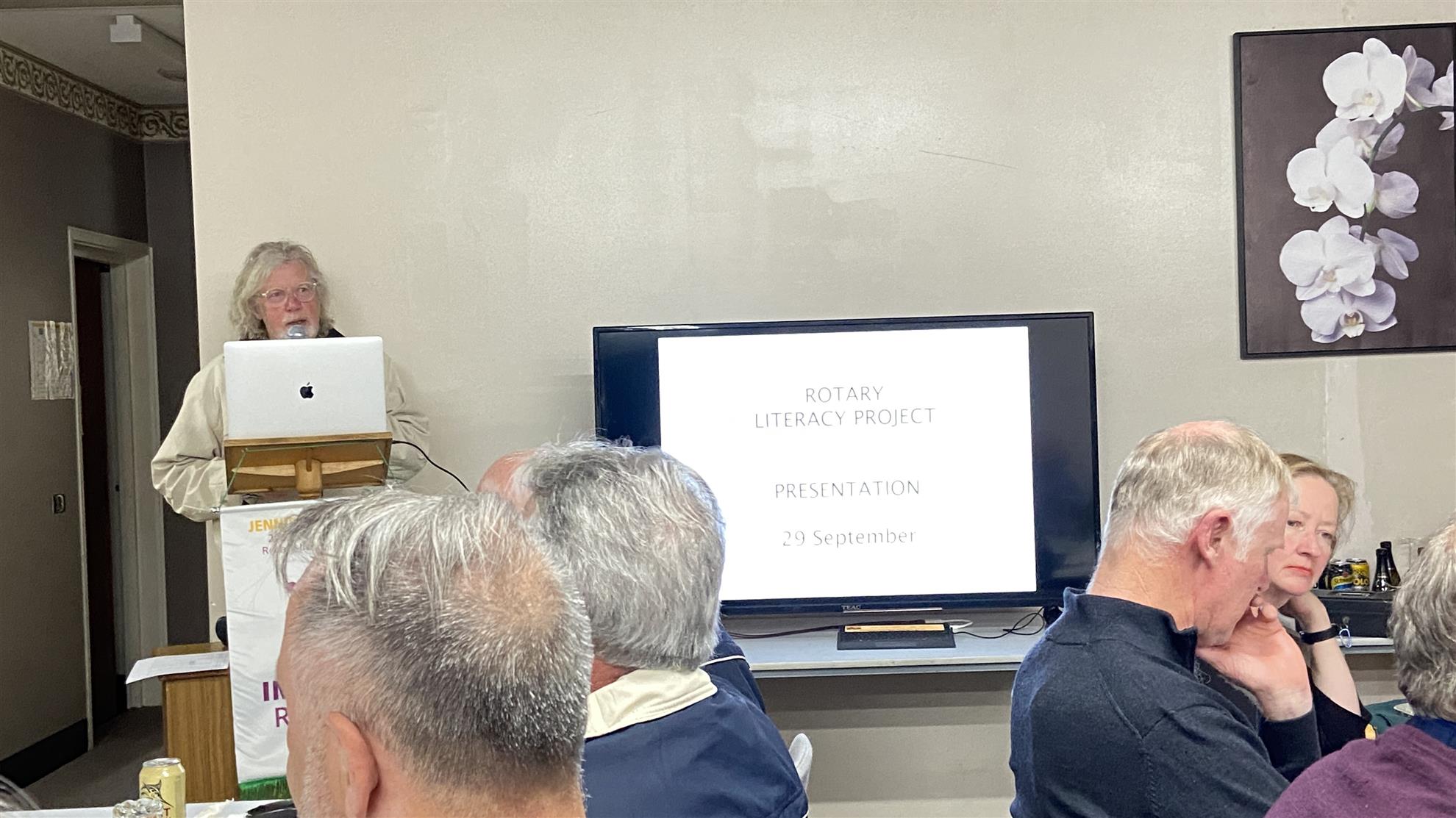 On September 29, Rotarian Dr Lowan Clarke outlined details of the Maryborough Rotary Literacy Project and the work that he and Rotarian Adrian Masterman-Smith have been working on for a number of years. The full text and images from Lowan's presentation can be seen by clicking "Read more...".
On September 29, Rotarian Dr Lowan Clarke outlined details of the Maryborough Rotary Literacy Project and the work that he and Rotarian Adrian Masterman-Smith have been working on for a number of years. The full text and images from Lowan's presentation can be seen by clicking "Read more...".MARYBOROUGH ROTARY LITERACY PROJECT
PRESENTATION Dr Lowen Clarke
29 September 2022
at Mill House Neighbourhood House, Maryborough, Victoria
Every now and then, I take a look at how teaching of reading and writing is being undertaken. There is a constant argument over method. This is as it should be, of course. But, some of the argument masks moral and political stances.
Somehow it is more morally uplifting for a child to learn phonetics first. Or, to recite the alphabet to perfection. Does this somehow represent a style of parenting that is about toughening the child up?
The pleasure of hearing a story, then reading it, and then writing a story gets pushed aside.
And, how many kids need extra inspiration to read? Many pick it up without any apparent instruction. Instead, the teacher can help and confirm the child’s interests and progress.
In the past weeks, however, it was decided that all year one children will be tested.
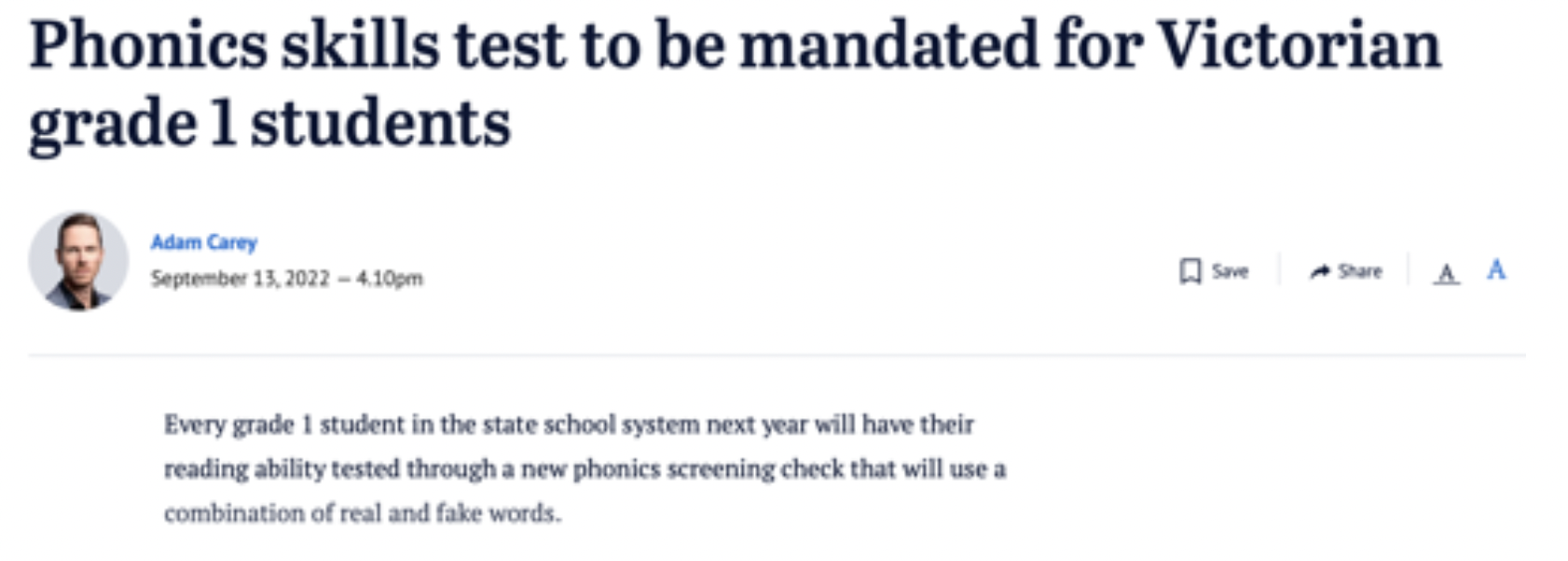
I don’t think this is our concern. We are better off working on other areas.
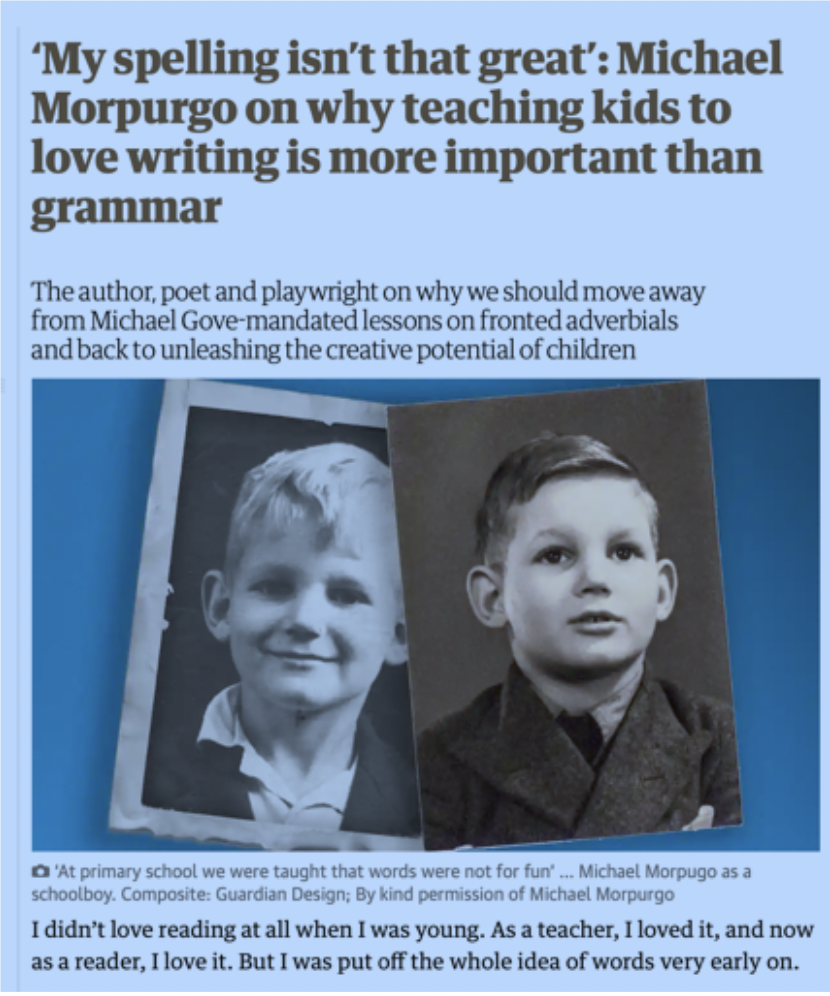
Morpungo writes in The Guardian:
When I was a primary school teacher in the 1970s...... I was able to concentrate on encouraging children to find their own voices. That is what literacy is for – to express your thoughts, to discover the music in language, the joy of reading, and all the interest, knowledge and understanding we can gain through that. It is not the analysis of a sentence – that comes later.
This is the opposite of how I was taught, at St Matthias primary school in London, which was very punishment-driven. There was fear in the classroom, and grammar and punctuation were part of that. It is now a wonderful school, where kindness and creativity go hand in hand.
I came from quite a bookish family. I was read to every night by my mum, who was an actor. She was guided by the instinct that if she loved a poem or a story, she wanted to tell me that story, or read me that poem. So I was handed the love of stories by my mother, but then went off to primary school, where I learned that words were not for storytelling, or music or fun. They were about spelling and punctuation, and if you got things wrong, you were in trouble.
Adjunct Associate Professor Misty Adoniou (2013) puts it this way :
‘The ‘phonics versus whole’ debate is pointless, and it is distracting. Our failing students know their sounds, they can even read simple sentences. Their diet of bland and meaningless home ‘readers’ with their repetitive sentence structures and controlled vocabulary has ensured this. Such books teach our low achieving students from non standard English speaking backgrounds nothing about how ‘school English’ works and do not set them up for success in national and international literacy tests. What these learners need is good literature, and teachers who have a strong understanding of how the English language works which they can convert to meaningful teaching.’
Misty also promotes drawing as a way to learn to read and write.
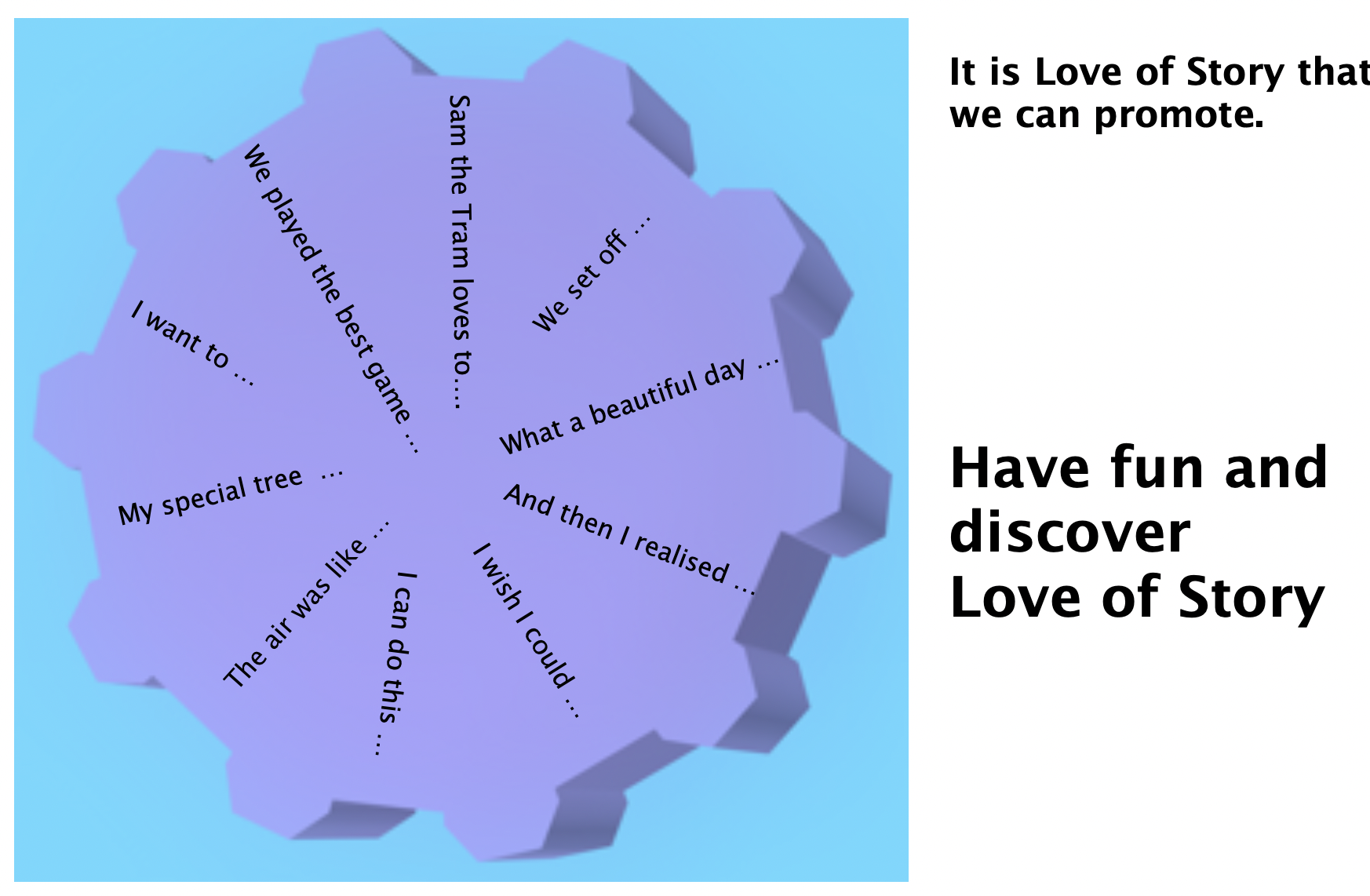
Love of Story
may increase the desire to read and write
may be a defence against trauma
may help develop a relationship with the world may be a step towards lifelong learning
Adrian Masterman-Smith and I have been working here along these lines for some years.
Adrian ran a project for the Council here for which he got great praise in New York. The artwork could grace any major gallery with ease. It combined words and images to express local stories.
This is the story seats project.
Story Seats
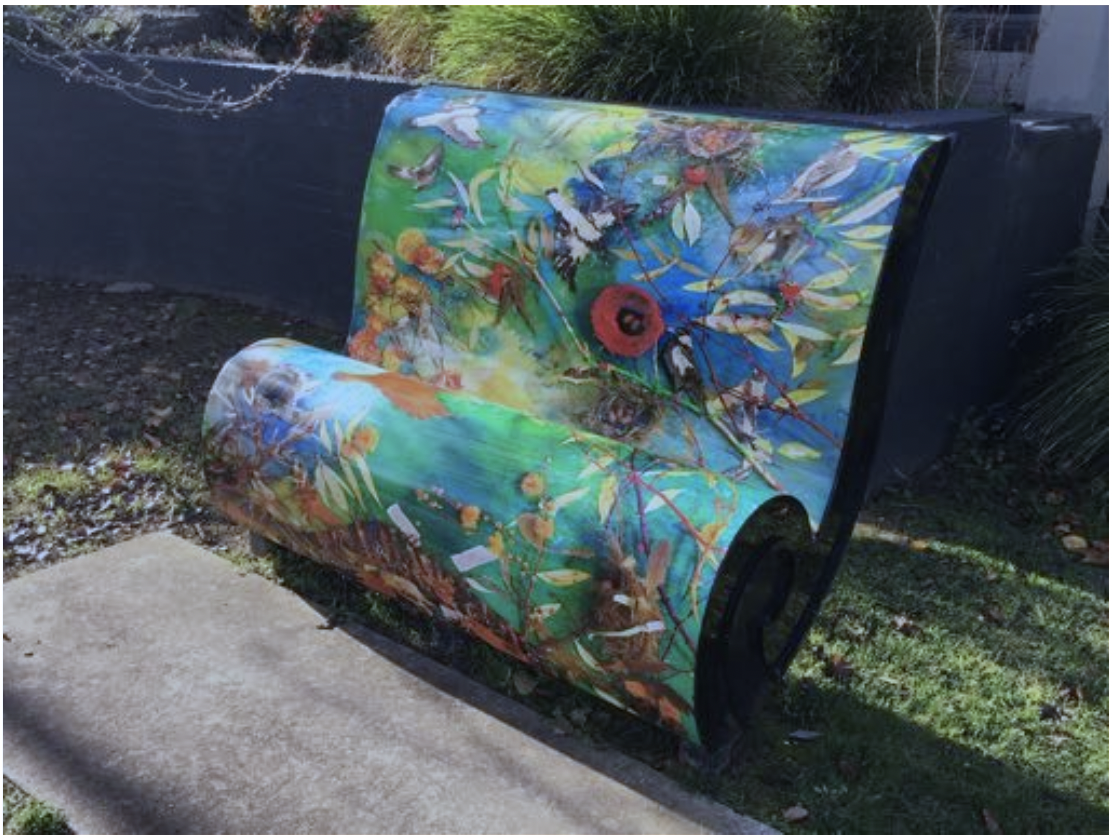
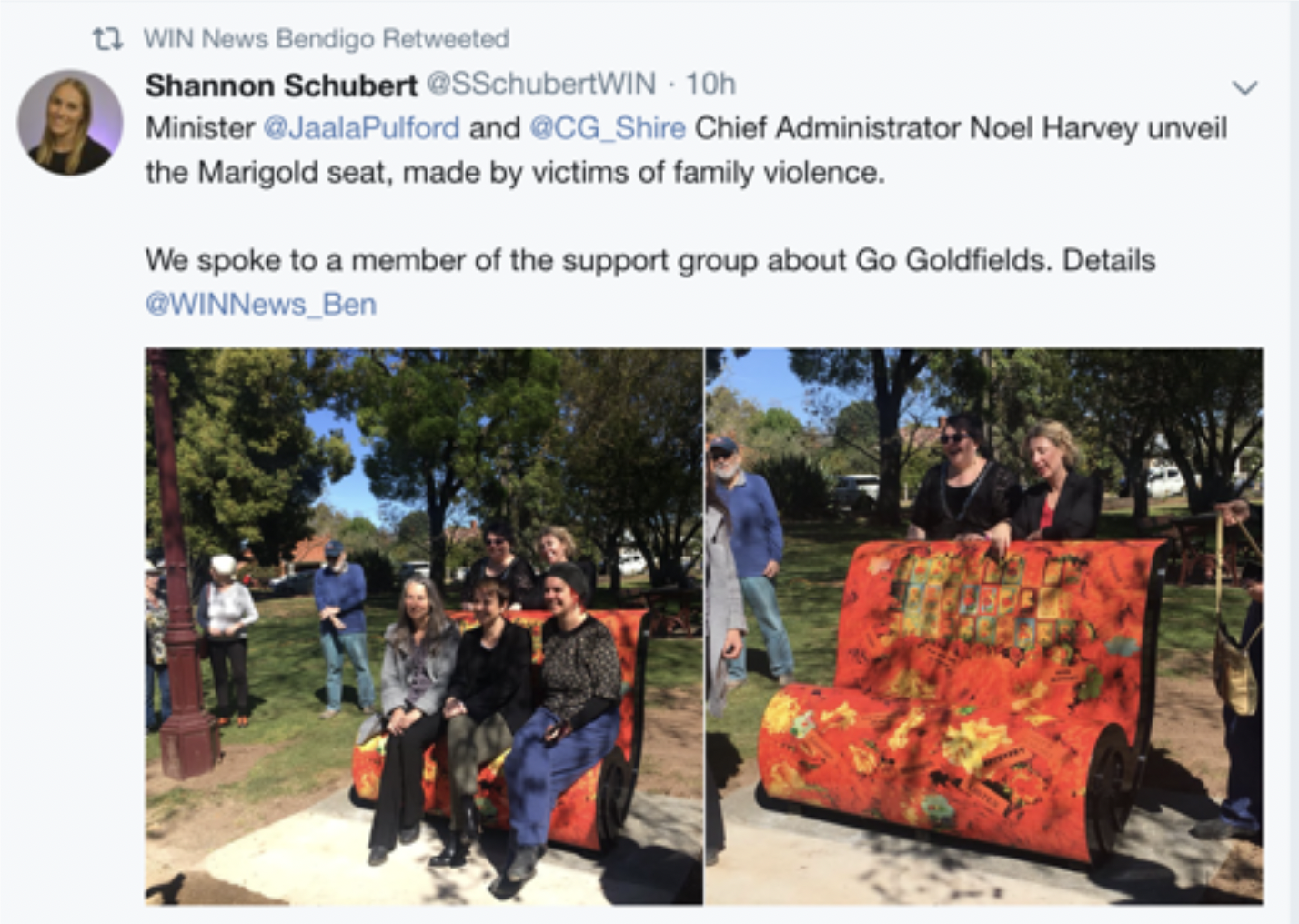
This was not just for adults. We worked with kids too. Part of this was the creation of a book at a primary school.
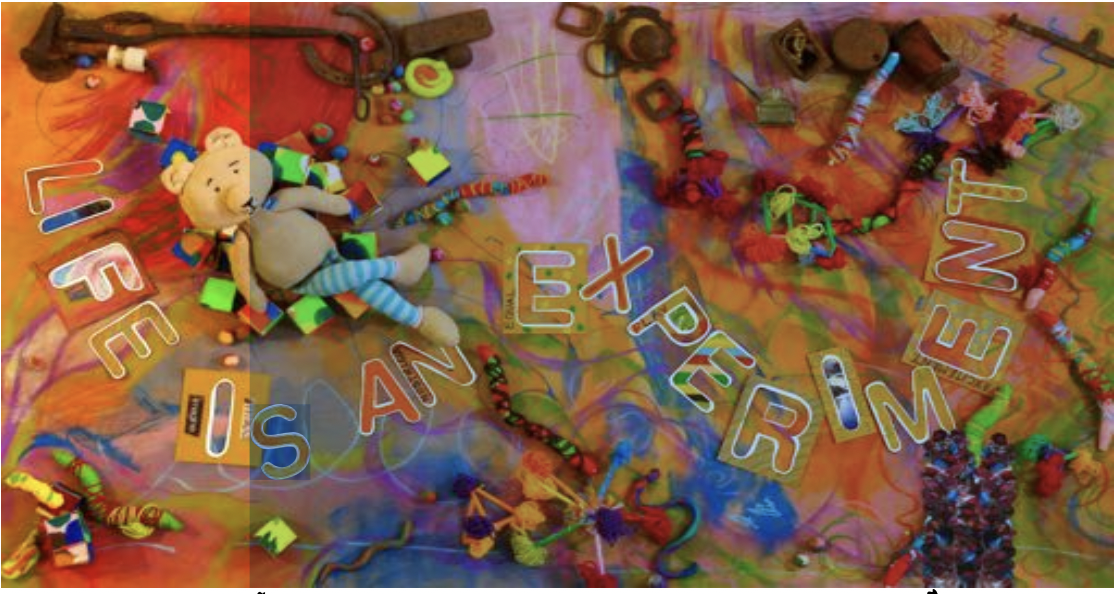
Benjamin in Bealiba
Story and images by
Aaron, Alexis, Amy, Anders, Ashlee, Aurora, Carol, Charlie, Chelsea, Cory, Eddie, Frankie, Geordan, George, Grant, Hadley, Henry, Ivy, Jarred, Jayde, Jonas, June, Kristy, Lisa, Luke, Maisie, Marissa, Merrien, Morgan, Rose, Ryker, Sam, Sammi, Sarah, Sigrid, Sue, Suzie, Thomas, Travis, Victoria and Zoey.
In addition, because I am an author who has had books printed here, I see Maryborough as the source of story all around the world. I was at a writers conference in Perth and spotted the boxes of books straight from the printer here.
Consequently, for the community, we have registered the trademarks City of Stories and Maryborough Words - the start of a literary festival one day. We had to fight off a New York company to protect this.
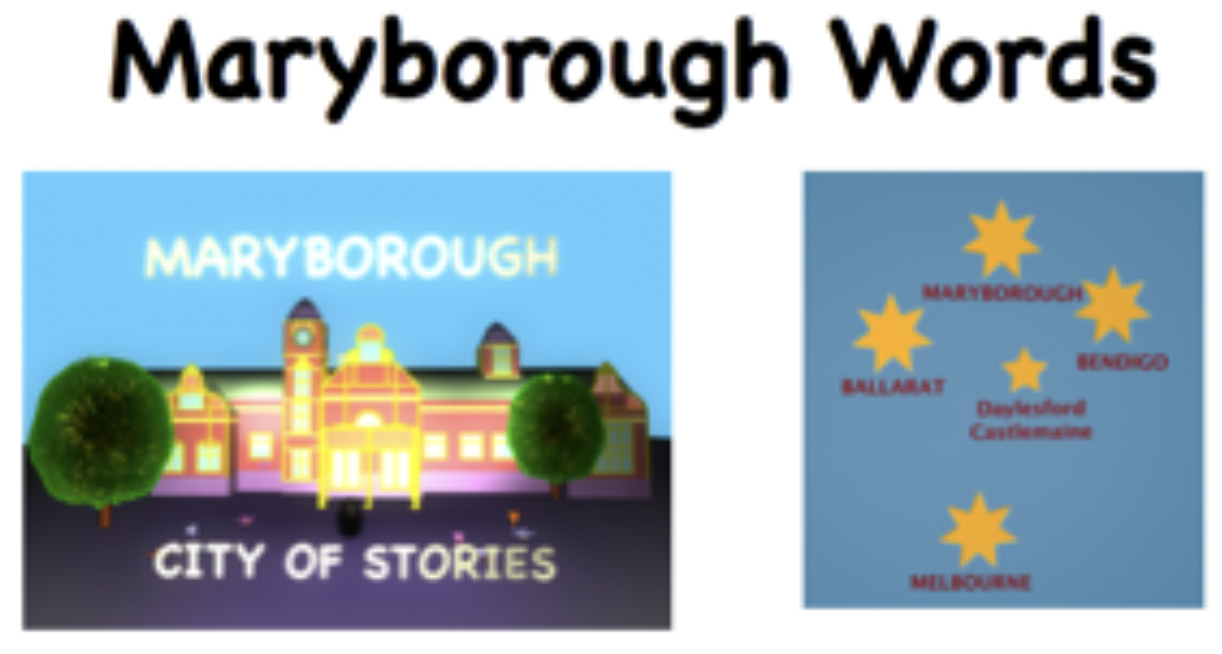
You already know the ideas I have put together with Sam the Tram to promote Love of Story to kids, young and teenage. We hope to have this at the Go Goldfields Festival.
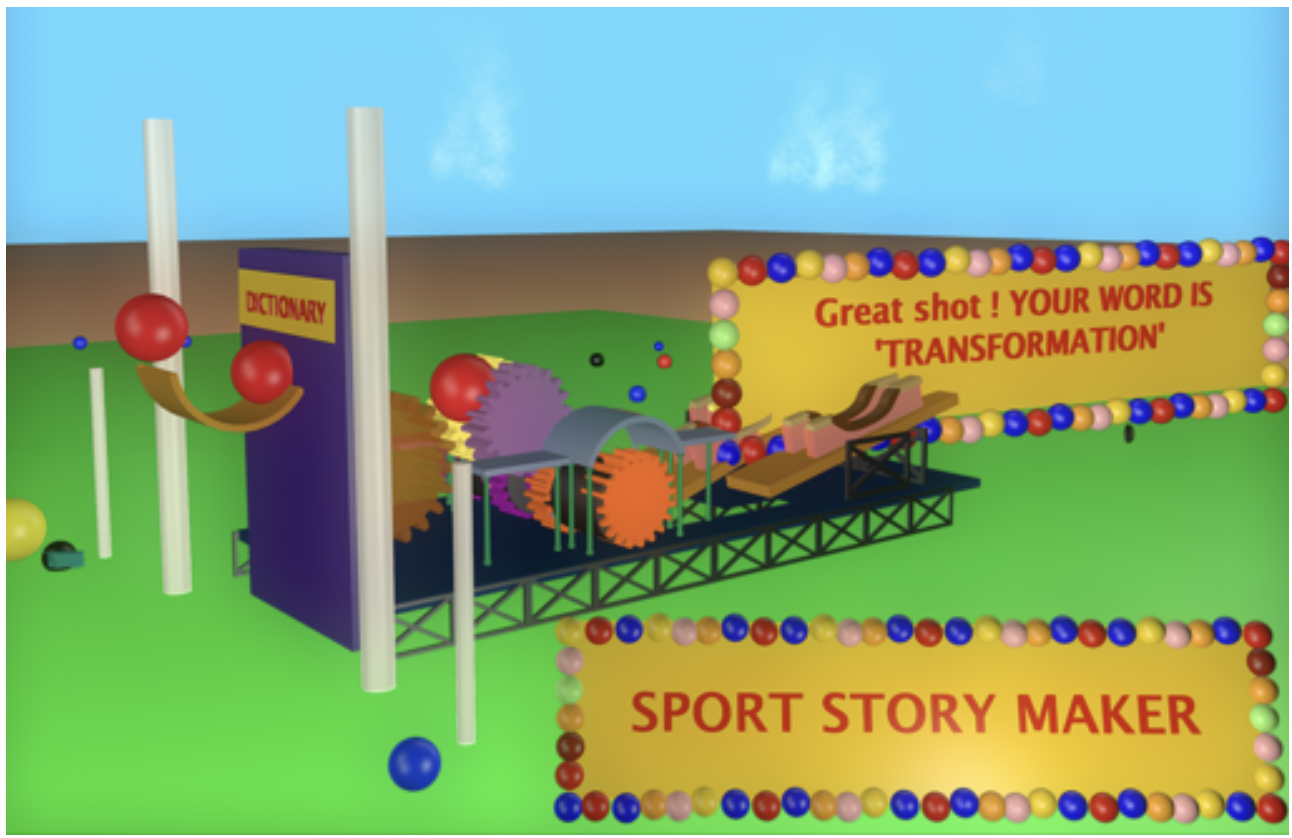
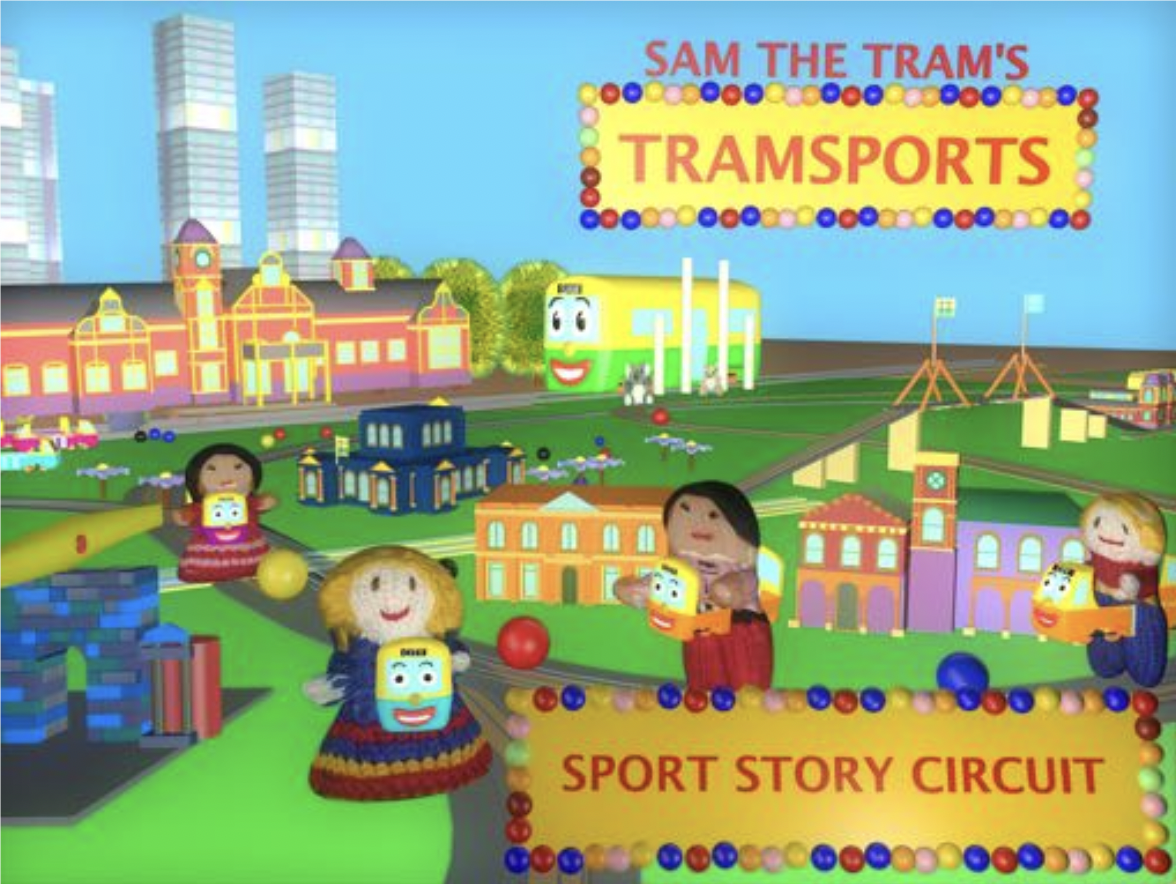
Here at Mill House Neighbourhood House we intend to create a mural laneway right here - outside. And this is planned to be part of a much bigger project - a Mural Trail from the Station to the Post Office.
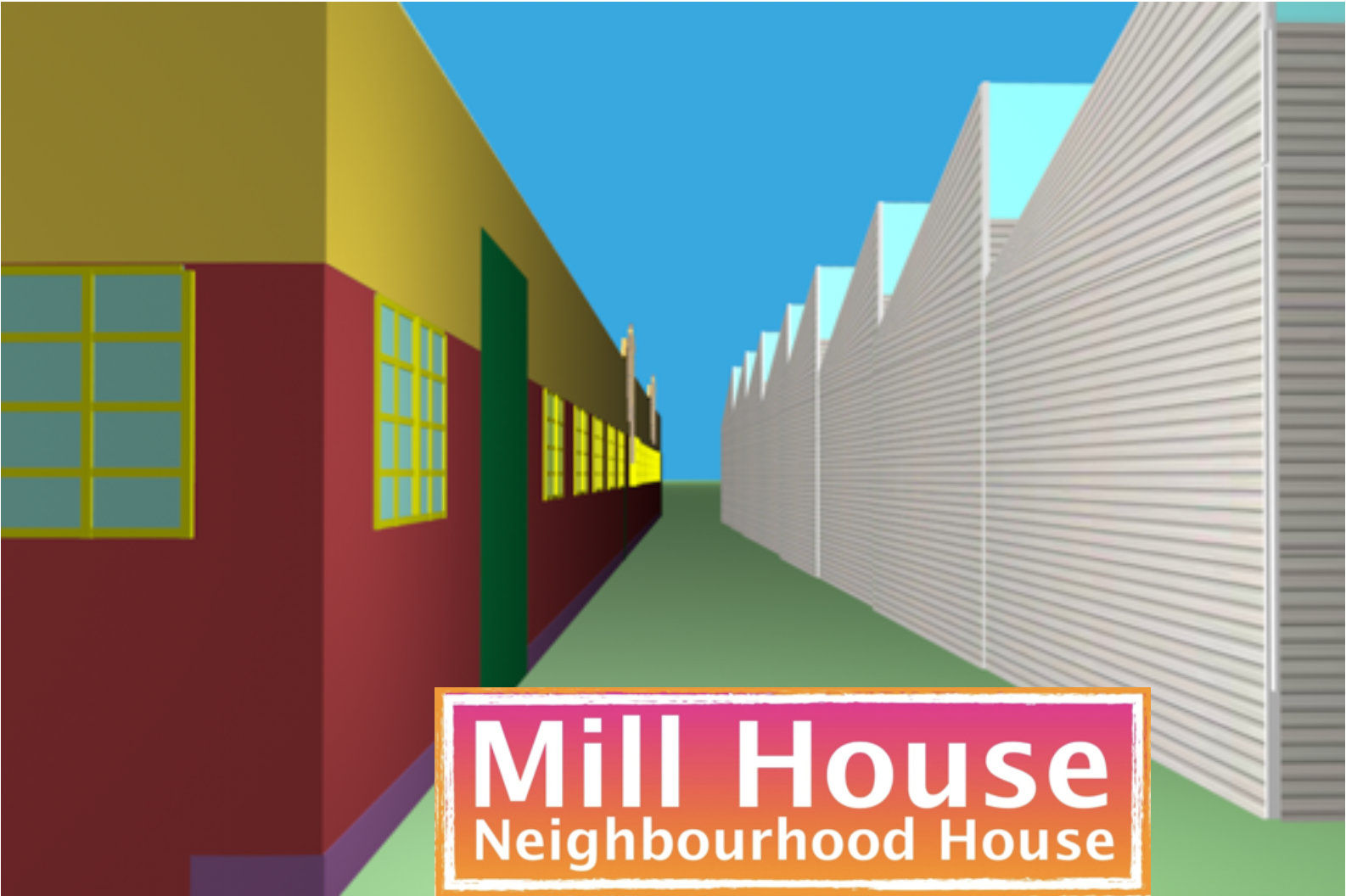
I am presenting this because for our Maryborough Rotary literacy project, getting kids to express their story, and to reflect on what stories they are exposed to on TV and internet, is what we can do without getting into any arguments, or moral positions.
These are the sort of possibilities that we can take up and add to, so that the whole town looks like a town that encourages story. And all these aspects of love of story have academic backing.
Academic studies like Doctorates are composed of the content and the method.
There is a whole set of methods called Narrative Inquiry. There are many of them. There are many different ways to surface a person’s story.
My method for my doctorate was a new one, an evolution of existing methods. Mine is based on helping a person with problems, or a group, or organisation, to surfacing information by not concentrating on the factual story.
Instead, I encourage people to write a fictional story, and go right through to a high standard of writing and illustration. I call this Creative Narrative Inquiry. It takes the pressure off, and builds a sense of achievement as the deeper situation of lived experience is revealed. In one way or another, it is what I will always employ.
So, let us make life rich and encircle kids with why they would like to read and write. Adrian and I look forward to more ideas from Rotary towards Love of Story.
Thanks.
Images and Text © Lowen Clarke